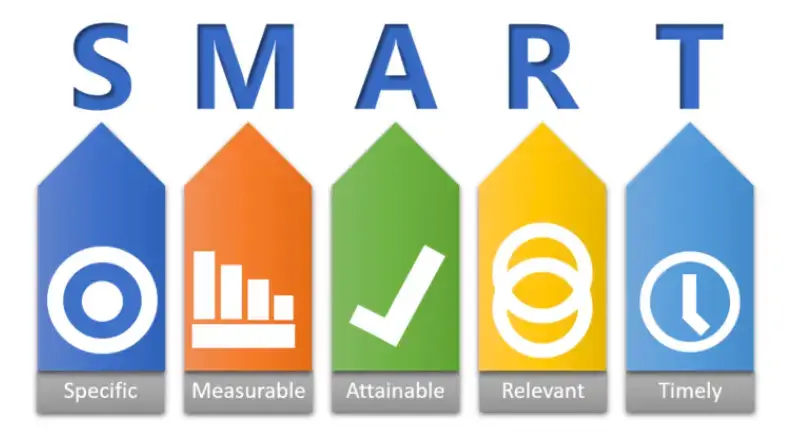In today’s digital age, the world changes quickly, and staying competitive in eCommerce can be challenging. To drive growth, you must accept using data analytics as the way to gain insights into customer behavior, optimize operations, and make informed decisions.
Introduction: Leveraging Analytics to Optimize Operations and Drive Growth in Your eCommerce Business

Data analytics is one of the most powerful tools. Harnessing the power of data-driven decisions, you can:
- Optimize your operations
- Gain valuable insights into customer behavior
- Make informed decisions that drive growth
There are many other advantages of data-driven decisions. Keep reading if you want to know them. Also, this article will explain how small business owners can use analytics to thrive in eCommerce.
What is Data Analytics?
Data analytics is the procedure of gathering, analyzing, and analyzing. It includes decoding heavy volumes of data. This process aims to uncover patterns, trends, and understandings.
Vicky Cano, Chef & Recipe Developer at Mealfan, said, “Data analytics is vital in e-commerce. It gives you valuable details about consumer behavior.
Also, it will tell you about the current market trends and working efficiency. Through data analysis, a business owner gets valuable consumer information, like:
- Gain customer insights
- Purchase history
- Browsing behavior
- Demographic information
All these data will let the owners tailor their marketing efforts to consumer behavior. Also, they can optimize product offerings. Hence, their efforts can give your consumer an exceptional customer experience.”
Improve Operational Efficiency
In an interview, Alex Contes, Co-founder & Saas Expert of Reviewgrower, said, “Data analytics enables you to know the bottlenecks in the supply chain.
Also, you can optimize inventory management by using data analytics. Moreover, it can help you simplify logistical operations. Besides, you can also track the key performance indicators (KPIs) such as:
- Order fulfillment time
- Shipping cost
- Customer satisfaction
Small business owners can make data-driven decisions. It can help enhance operational efficiency by tracking this. Also, it will enable cost reduction.”
Identify Market Trends and Opportunities
Abner Miller, Founder at Starlinkhow, said, “It is one of the major benefits of using data analytics. Particularly for small business owners, you can monitor market trends through data-driven decisions. Also, it will help you identify emerging customer priorities.
By using this data, small business owners can build targeted marketing campaigns. Also, they can introduce unique product lines. Moreover, they can make money on untapped market opportunities.”
Implementing a Data-Driven Culture
It is vital to have a foster-driven culture in the organization, specifically if small business owners want to use data analytics effectively.
They can follow critical steps to implement a data-driven culture in their organization. Here are some:
Establish Clear Goals and Metrics

Te Wu, CEO of PMO Advisory, said, “As a professional consultant, I must say defining clear and concise goals and objectives for your eCommerce business is essential.
For instance, reducing cart abandonment, increasing conversion rates, or improving customer retention. You can make relevant metrics to calculate the progress towards these goals.”
Invest in the Right Tools
There are many data analytics tools in the market that you can buy. These tools and software will help you align with your business needs.
In an interview, Joe Troyer, CEO & Head of Growth of DigitalTriggers, advised, “There are multiple options available. You can opt for free tools like Google Analytics or more progressive platforms.
These powerful tools help you to track some important elements of the business, such as examining key performance metrics, consumer behavior, and website performance.
You need to ensure that your organization has a strong data collection system. It includes:
- Collect and organize data
- Capturing customer data analytics
- Website analytics
- Sales figures
- Other relevant information
Powerful data collection is essential. It would be best if you organize the data in a centralized location. By doing this, you will have easy access and analysis.”
Analyze and Interpret Data
Hank Williams, founder at Autowiringpro, said, “Regularly analyzing your data is vital. The prime reason is that it helps you uncover the latest trends and insights.
With the help of these data, you can look for patterns in customer behavior. Hence, it will help you identify areas of improvement in operations.
Also, you can track the effectiveness of marketing campaigns. Furthermore, you can use visualization tools to illustrate data meaningfully, enabling decision-making.”
Train and Educate Employees
Noah Clark, Founder at Sparkaven, said, “Training and educating employees is a key factor for success. Also, it will help you beat your competitors.
Therefore, small business owners should focus on providing training to their employees. They need to train them on the importance of data analytics. Also, the employees must be aware of the practical usage of the relevant tools.
Plus, it would be best to encourage a data-driven mindset among your team. Moreover, you can empower your team to make decisions based on data insights.”
Utilizing Analytics For Optimization

Small business owners can use analytics to optimize their operations. Implementing data-driven culture can drive growth. There are some areas where analytics can make a considerable impact; they are:
Customer Segmentation and Personalization
Small business owners can use data analytics to partition their customers. They can segment their customer based on
- Demographics
- Behavior
- Preferences
This partition will help tailor each class's marketing messages, product suggestions, and promotions. Segmentation will enhance customer engagement and drive conversions.
Conversion Rate Optimization
Analyze data to specify areas of the consumer journey. You can identify where conversions are falling or potential customers are leaving their carts.
Use this data to make data-driven optimizations to your website. For example, making page load times fast and simplifying the checkout procedure. Also, you can use it to improve product descriptions and pictures.
Inventory Management and Demand Forecasting
A business owner at Accelerate Marketing said, ”If small business owners leverage data analytics, they can benefit their businesses.
It is useful in forecasting demand for your products. Also, it is beneficial in optimizing inventory levels. Analyzing seasonality trends, historical sales data, and market fluctuations is advantageous.
By analyzing these, you can ensure you have the perfect stock available. It is beneficial to meet customer demand while lessening excess inventory costs.”
Pricing Optimization
You must analyze competitor pricing, pricing data, and consumer behavior. You should identify pricing thresholds and determine the helpful pricing tiers.
Also, implement dynamic pricing techniques to increase revenue and profit margins.
Marketing and Advertising Optimization

Josh Snow, CEO of Customerfeedback, claimed, “Through analytics, you should calculate the efficacy of your marketing campaigns. You can track key metrics such as:
- Click-through rates
- Conversion rates
- Return on ad spend (ROAS)
All this information will enable you to distribute your marketing budget more effectively. Moreover, you can invest in high-performing channels and optimize your messaging to catch the right audience.”
Customer Retention and Loyalty
Royal Hernandez, Founder at Starandlink, said, “Identifying consumer buying patterns is vital. You can use data analytics to determine patterns in customer attribution. It helps implement strategies to make customer retention better.
By analyzing consumer behavior and engagement metrics, you can determine chances for:
- Personalized follow-ups
- Targeted promotions
- Loyalty programs
These can improve customer satisfaction. Also, it increases customer lifetime value.”
Overcoming Challenges and Ensuring Data Security
Data analytics give tremendous opportunities. Small business owners must pay attention to challenges and guarantee data security.
Data Quality and Integration
You must integrate across multiple systems and platforms. You can invest in data cleansing tools and processes to improve things. These tools and processes are essential to eradicate duplicate or outdated information.
Data Privacy and Compliance
To protect customer data, adhering to data privacy regulations is essential. And also, it is important to choose the right data collection platforms. For instance, web3 survey platforms often handle sensitive information with utmost care, making it crucial to implement robust security measures.
You can implement security measures. For example, secure storage, data encryption, and access controls to protect sensitive data.
Skills and Expertise
It's crucial in today's e-commerce era. Small business owners should have the skills. They can consider partnering with data analytics experts. You can stay updated with the trends and techniques in data analytics.
Scalability and Ethical Use Of Data
Small business owners should plan for scalability as the business grows and data volume increases.
Henry Waddilove, Managing Director of Novus Business Connections, said, “Make sure that your analytics infrastructure can deal with expanding datasets.
It must be able to accommodate future growth. Plus, using data ethically as well is crucial in business. You can practice ethical data usage by respecting customer privacy. Also, you can get consent for data collection.
Also, use data for legitimate business objectives. Retain transparency with consumers about how their data is being utilized.”
Conclusion
In the era of eCommerce, data-driven decisions are becoming crucial for small business owners.
By leveraging analytics, small business owners can better understand customer behavior. Moreover, they can identify current market trends, which aids in making informed decisions and increasing revenue.
Small business owners should embrace data-driven decisions. They will unlock their eCommerce business's full potential.


